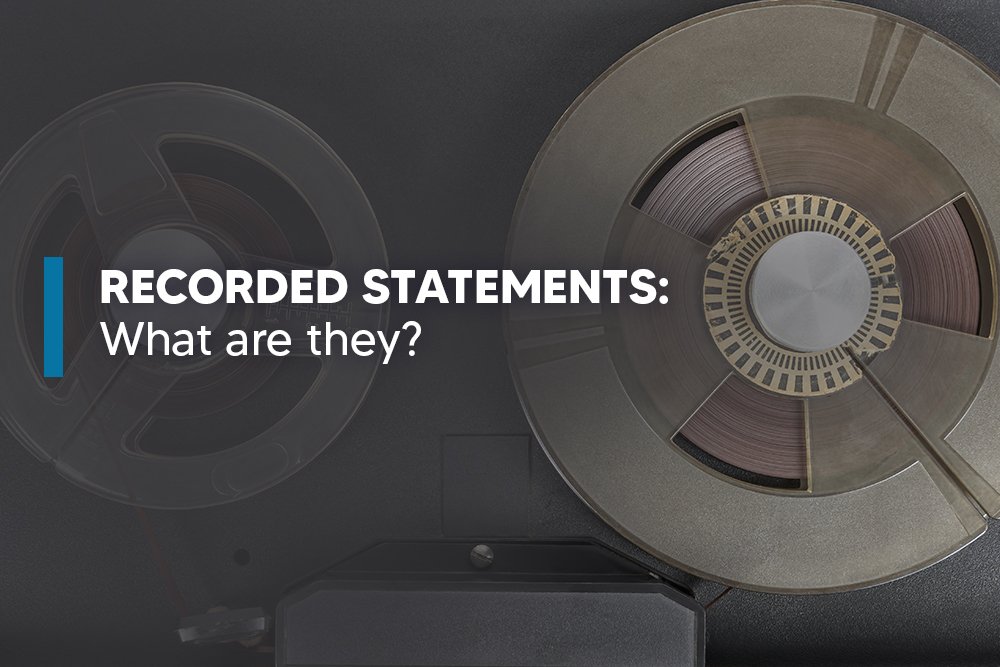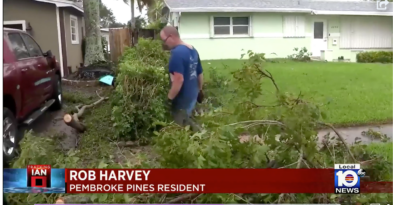Recorded Statements for Insurance Claims
When you are involved in a car accident, the insurance company may want to schedule a recorded statement with you early in the claims process. Typically, you can expect the adjuster to call and ask for your statement within days of filing your insurance claim. However, options vary on whether or not you should agree to give a recorded statement, so do not be too quick to agree to it. The benefit of giving a statement is that it expedites the claim investigation and settlement. However, a statement serves no legal purpose and if you aren’t careful, it could potentially harm your claim.
Adjusters Want Recorded Statements
You may be wondering why a claims adjuster wants your statement. The claims adjuster gets to hear your side of the events leading to your injury and the aftermath. Without your statement, they only have the insured’s version of what happened. The adjuster will use recorded driver statements, witness statements, and the police report to build a better picture of what caused your injuries. It is important to know the adjuster is not your friend, no matter how nice they are to you. You are just another name on a claim that they handle frequently.
Adjusters are Tricky
Negotiating an injury settlement is an adversarial process. Often times, claims adjusters want to use your recorded statement to try and trip you up and get you to say things that will hurt your claim. Which is why if you do choose to give a statement, be careful of what you say as it will become a part of your claim forever. You also have the option to deny the recorded statement and offer a written statement instead.
You also have the right to put off giving the statement until you are able to contact a personal injury attorney for advice on how to proceed. Many personal injury law firms offer free case evaluations, so don’t feel like you have to give into the pressure an adjuster might be giving you.
If you choose to have an attorney represent you, then you no longer have to deal with the adjuster directly. Having an attorney by your side ensures the adjuster won’t be able to get away with tricky or misleading questions that are intended to trip you up.
Attorneys Advise Against Recorded Statements
Most personal injury lawyers will advise their clients not to give a recorded statement. It is a much too risky way for you to harm or weaken your case.
If you suffered serious injuries and filed a law suit, there is no reason to offer a voluntary statement. Your statement can and will be given at deposition when you have an attorney next to you protecting you.
In cases that are likely to be settled without the need for a lawsuit, attorneys will still recommend that you do not give a statement without them present.
When You Have to Cooperate
You may experience a case where the adjuster tells you they do not have to process your claim if you refuse to give a recorded statement. However, if your injury claim is against another person’s insurance company, it is a third-party claim and you are not required to submit a recorded statement.
If it is a first-party claim, meaning your claim is with your own insurance company, there is likely language in your policy that will require you to give them the information they need in order to investigate your claim. This is commonly known as a Cooperation Clause.
Your insurance policy is a contract and the clause means you agree to provide them with information about any accident you may be involved in. Sometimes you might not have a choice but to cooperate, however, you do not have to give up your right to representation.
If you do not feel comfortable, ask an attorney for legal advice before agreeing to record that statement. You might have the option to meet your contractual obligation with a written statement instead.
Tips for Recorded Statements
Be Wary of What You Say.
Adjusters will often get crafty with questions that are designed to weaken your claim. You want to stick to the facts and avoid going on rants, complaining, or discussing anything that may lessen the insured’s liability or the amount you can claim for damages.
You will also want to avoid volunteering any personal information or problems. This could lead the adjuster to insinuate that you were distracted by those problems, which affected your judgment, leading to the accident.
Prepare Your Statement.
If you are agreeing to give a recorded statement, you will want to take the time to prepare an outline of the facts of your claim. Once you have given your statement, there is no taking back anything that you said. Hence why it is vital that you are well-prepared before giving your statement.
Do not allow the adjuster to throw you off track of what you had prepared or what you are saying. If the adjuster interrupts in an attempt to ask you a question, politely decline and continue on with your statement.
Make Your Own Recording.
The same as the adjuster, you have every right to make your own recorded statements. This way, you are able to easily refer to your statement while preparing your claim, and the adjuster won’t be able to twist your words. Just ensure that you tell the adjuster upfront that you will also be recording your discussion.
Another benefit to having the recording is that if your claim turns into a lawsuit, and you must give a deposition or testify at trial, you will be able to review exactly what you said during your previous statement.
Questions To Prepare For
-
What is the make, model, and year of the car you were driving?
-
Are you the car’s owner?
-
Were you driving your car for business purposes?
-
Were other vehicles involved?
-
Was there property damage?
-
Did you have passengers?
-
How did the accident happen?
-
When did it happen?
-
Are there witnesses?
-
Were you using a cell phone when the accident happened?
-
What did you do to avoid the accident?
Beware, some questions may get personal.
-
What are your injuries?
-
Did anyone call an ambulance?
-
Were you treated at the scene?
-
Have you seen a doctor since the accident?
-
Did you use any drugs or alcohol in the 24 hours before the accident?
-
Are you employed?
-
What kind of work do you do?
-
How much money do you make?
-
How are you doing today?
-
Do you suffer from any chronic conditions or old injuries?










